The people who want to buy a railroad
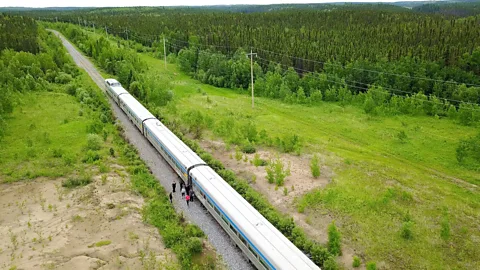 Eliana Alvarez Martinez
Eliana Alvarez MartinezVIA Rail runs 1,700km across Manitoba, and for many remote communities, the train is the only way to connect to the rest of the world. Now the local people want to buy the tracks.
 Eliana Alvarez Martinez
Eliana Alvarez MartinezWhen fully operational, the VIA Rail enger train traverses Manitoba, Canada, through the remote north, connecting Winnipeg, the province’s capital, to Churchill, a small community seated on the shores of the Hudson Bay.
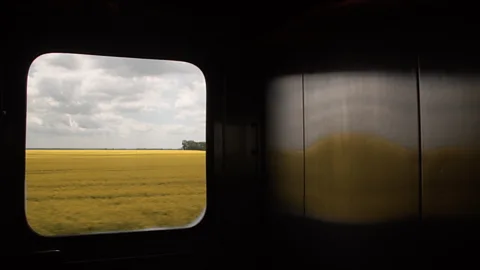 Eliana Alvarez Martinez
Eliana Alvarez MartinezAs the train makes its way north, ing through small communities, the landscape changes from city skyline to coniferous forests and muskeg (a type of swamp), and eventually to tundra.
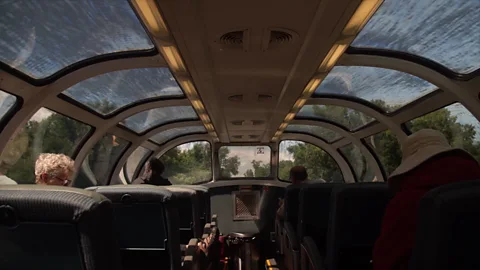 Eliana Alvarez Martinez
Eliana Alvarez MartinezWhile it is possible to fly to the northern regions, many adventurous travellers opt for the two-day, 1,700km scenic train ride from Winnipeg and enjoy the open views – and the occasional wildlife spotting – from the domed car.
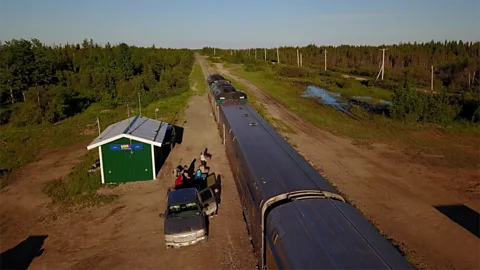 Eliana Alvarez Martinez
Eliana Alvarez MartinezHowever, for locals in First Nation communities like Ilford, the train is a lifeline as it’s the only way to get groceries and medical supplies. They either have to take a three-and-a-half-hour rail journey to shop in the town of Thompson or order supplies and wait at the station for delivery.
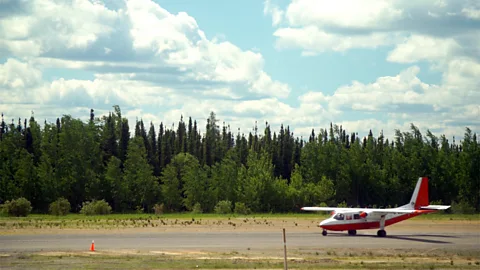 Eliana Alvarez Martinez
Eliana Alvarez MartinezFor Ilford residents, there are few alternatives. Flight charters are prohibitively expensive, and there are no roads apart from an ice road that’s only open for a few months of the year, at best.
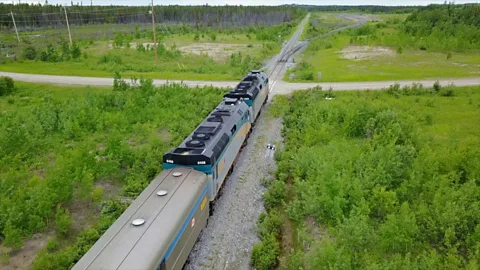 Eliana Alvarez Martinez
Eliana Alvarez MartinezThe US-based company that owns the train tracks, Omnitrax, operates at a loss and has been looking to sell them. Because there would be major problems if the train stopped working, the small, First Nations communities along the tracks want to buy them.
 Eliana Alvarez Martinez
Eliana Alvarez MartinezWhile isolated, people in these communities love their land and rely on it for food. They go fishing on the lakes in spring, berry picking in summer and hunting in fall. Some people are avid trappers.
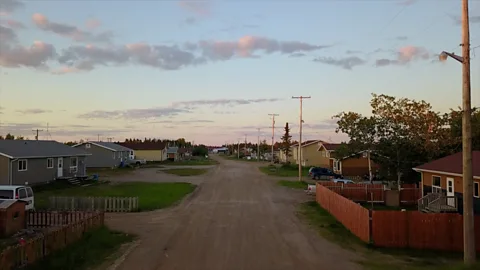 Eliana Alvarez Martinez
Eliana Alvarez MartinezThe quiet town of Ilford only has 180 people but benefits from its tight-knit community vibe. “It’s very peaceful, you don’t have the rush of the city and I think that it’s a very nice place to live,” said Chief Betsy Kennedy. “People here help each other.”
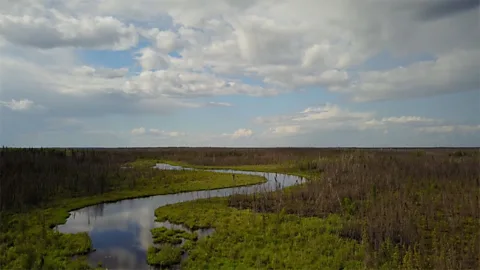 Eliana Alvarez Martinez
Eliana Alvarez MartinezLike many First Nations people in the area, chief Kennedy grew up by the tracks and her father worked on the rail. They rely on the train for jobs as well as getting supplies; the land limits other options. “All this used to be a lake at one point – we are surrounded by muskeg. We can’t build a road there,” said Burman Kennedy, the chief’s husband.
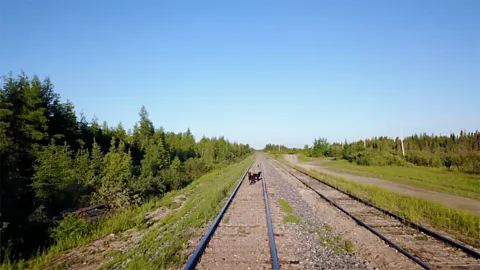 Eliana Alvarez Martinez
Eliana Alvarez MartinezUnfortunately, the train tracks are in bad disrepair (especially between Gillam and Churchill, where they're currently closed due to flooding), and Omnitrax can’t afford to fix them. “It’s pretty challenging because [the rail] has deteriorated in the past ten years, and without proper maintenance it’s going to deteriorate a little bit more,” chief Kennedy said.
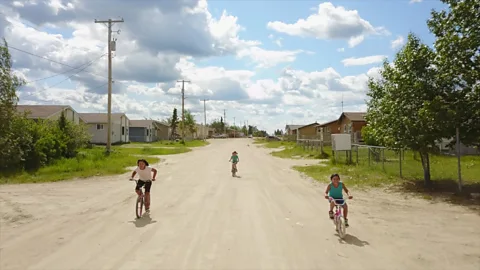 Eliana Alvarez Martinez
Eliana Alvarez MartinezEven though the railway is in jeopardy, the community hasn’t lost hope or the dream of buying the tracks on their land. “I think the First Nations [owning the rail] will have a better effect on the communities,” said Burman. “Owning a railroad… wow.”
